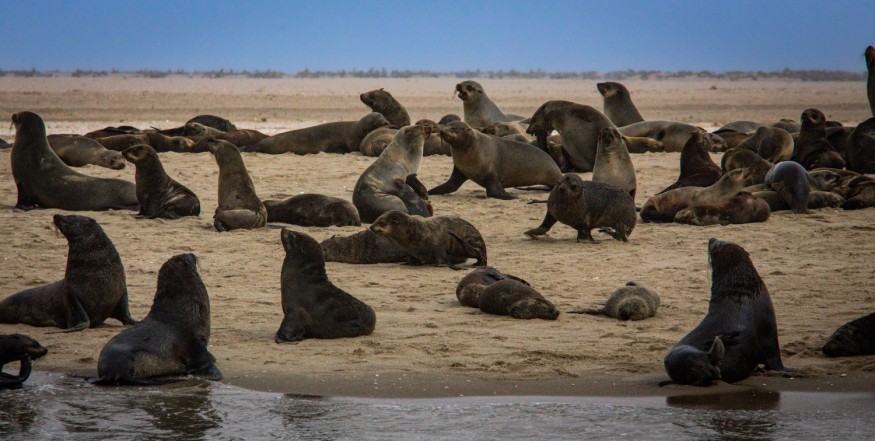Cape fur seals have been documented to mob and chase off a great white shark off the coast of South Africa.
The incident was caught on footage at the Robberg peninsula, located in the Indian Ocean in the waters of South Africa, according to a report last week.
Filmmakers took a shot of the unusual event as part of a documentary, revealing that prey can also fight back against its predator.
Great white sharks are known to be one of the world's top ocean predators, only being next to orcas or killer whales.
White sharks prefer a variety of prey, ranging from rays to dolphins, and sometimes squid turtles, but centers around seals or sea lions.
Due to the reality of such a food chain, there have been multiple recordings of the predatory sharks hunting Cape fur seals and not the other way around.
Seals Chase Great White Shark

In a YouTube video posted on October 23, the 3-minute clip shows that seals off the coast of South Africa have made a new strategy: mobbing and chasing a great white shark.
In the footage narrated by British broadcaster and biologist David Attenborough, it was revealed that seals developed a behavior to protect themselves against one of the most fearsome predators of the ocean.
The Robberg peninsula is a site where Cape fur seals use to dive into the ocean in search of fish.
However, with each dive of the seals also comes a life-threatening risk since great white sharks also gather in the area, a behavior in contrast to the white shark's behavior as a solitary hunter.
Cape Fur Seals
The Cape fur seal (Arctocephalus pusillus), also called the brown fur seal, is a species of the fur seal family, as well as the largest and most muscular members of the family.
Endemic in southern Africa, including in countries like Angola, Namibia, and South Africa, cape fur seals have an estimated maximum lifespan of 21 years.
Cape fur seals are often referred to as the 'dogs of the ocean' due to their facial appearance that resembles man's canine best friend.
Based on recent estimates, there are approximately 2 million Cape fur seals across southern Africa, where their colonies can be found along the coastlines of the mentioned countries.
Since 1893, Cape fur seals have been protected in South Africa but were still subjects to government-initiated or government-authorized commercial harvesting until the year 1990, according to The MarineBio Conservation Society.
The said fur seal species has been classified as "Least Concern" under the IUCN Red List of Threatened Species in 2015, which means their population is neither at threat nor endangered.
A. pusillus can also be found in Australia, specifically around the islands of the Bass Strait, in the southern part of Victoria, and a portion of Tasmania, where it is called locally as the Australian fur seal.
© 2025 NatureWorldNews.com All rights reserved. Do not reproduce without permission.





